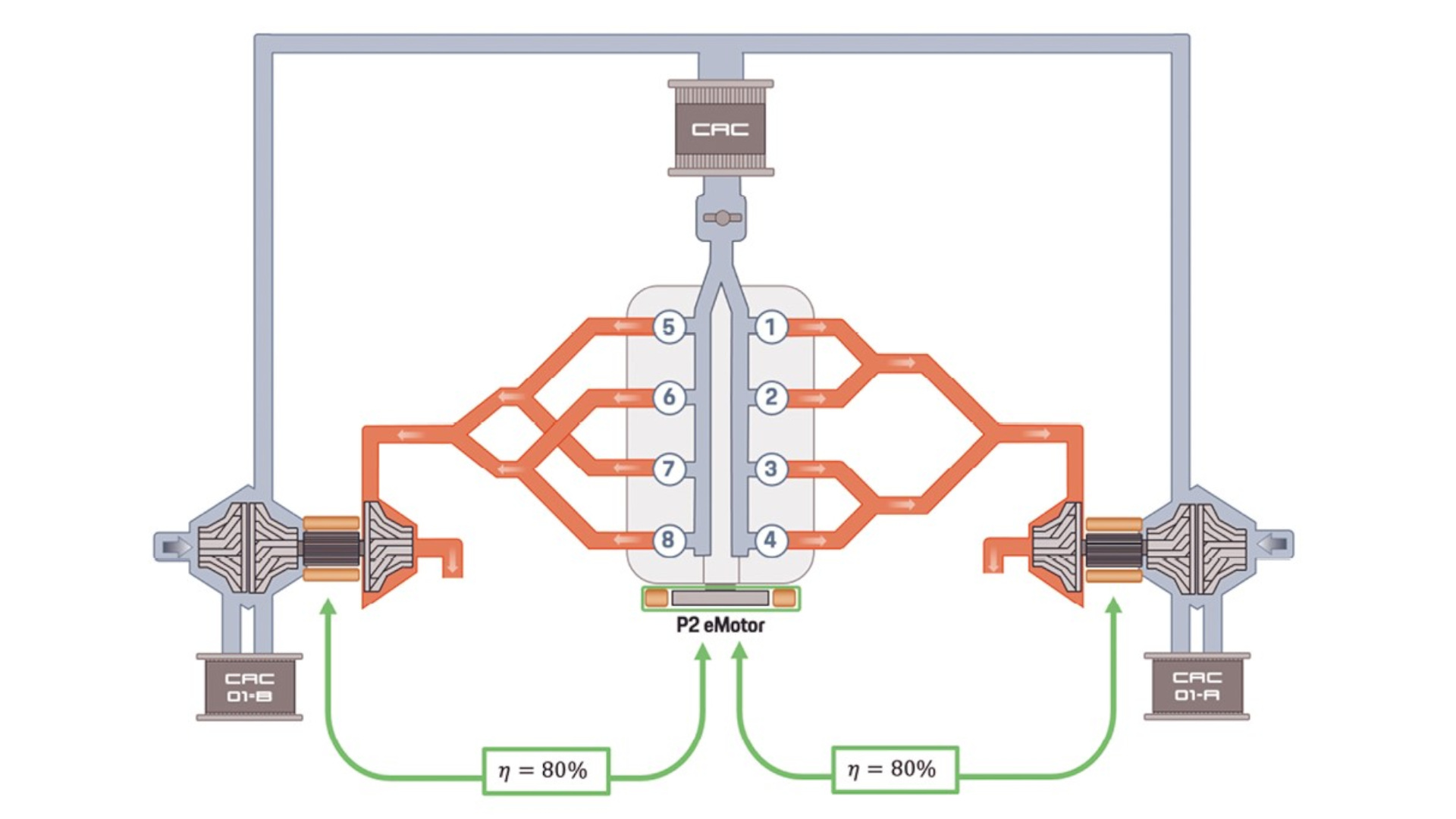

While other companies are researching hydrogen-fueled internal combustion engines for passenger vehicles, Porsche wants to approach the technology with more of a performance focus. Thus, it started investigating the matter, beginning work with an existing 4.4-liter gasoline-powered V8. It did some digital simulations and went as far as to lay down some virtual laps ’round the Nürburgring.
The virtual engine design was given a higher compression ratio and designed for the unique characteristics of hydrogen combustion. In order to burn it cleanly, twice as much air is required compared to a similar gasoline engine, so Porsche spent much time investigating innovative turbocharging solutions that could provide this.
The final concept relies on an electrically assisted turbocharger with a special back-to-back two-stage compressor design. Air is fed through one compressor and then passes through a charge cooler before reaching the second compressor stage, where it then goes on to the engine.

Porsche’s simulations suggest the hydrogen V8 would be good for 590 horsepower (440 kW). It then ran another simulation, placing the virtual engine into a hefty luxury car model weighing 5,842 pounds, and the combination was able to achieve a spritely Nürburgring lap time of 8:20. It’s certainly not setting the world on fire, but it’s not slow, either. As a guide, a Range Rover Sport SVR set a lap time of 8:14 back in 2015. Porsche itself claimed the SUV lap record last year with a Cayenne Turbo GT, which screamed around in a blazing 7:38.9.
While a hydrogen internal-combustion engine is cleaner than a gasoline engine, it’s not completely zero-emission. Hydrogen burning directly with oxygen only produces water, which is clean. However, when the reaction is carried out in the air, the heat of the reaction creates nitrogen oxides, which are bad for the environment.
The output is still well below Euro 7 emissions limits, and is “close to zero” across most of the engine’s operating range, according to Porsche. Overall, the engine’s output is almost as clean as ambient air, with no hydrocarbon, particulate, or carbon monoxide emissions to speak of.

Because Porsche conducted a virtual test, there’s no video of a hot hydrogen lap round the ‘Ring, nor a beautiful engine note to behold. However, this research could be used to further support efforts to build clean hydrogen engines in the future. With some companies already running them in motorsports applications, they could yet be a viable performance alternative.
Got a tip? Let the author know: lewin@thedrive.com